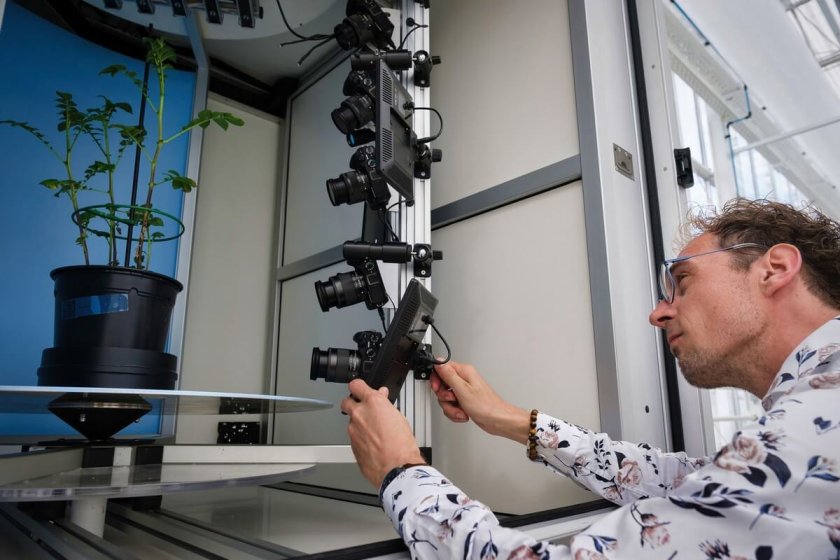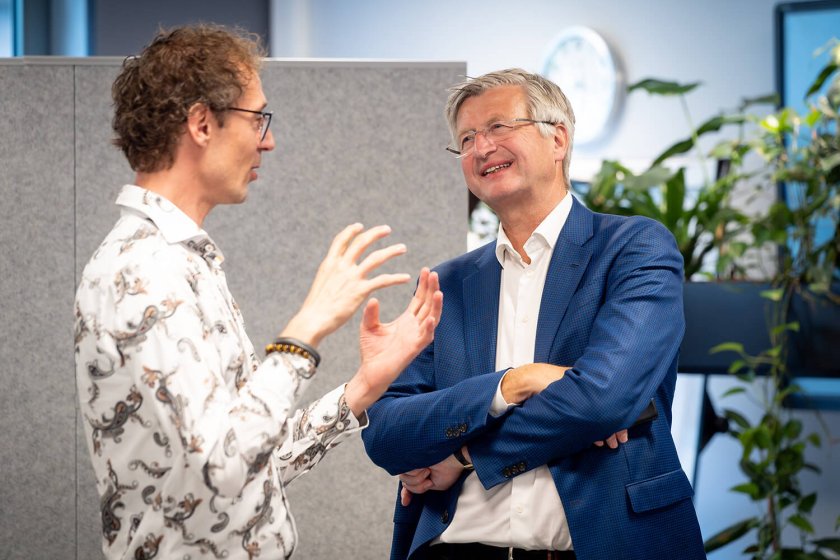
category_news
A time machine for plant growth: BABETTE
Researcher Johan Bucher (WUR), together with colleagues Matthijs Brouwer, Rick Hendriksen, Richard Visser, and Gerrit Polder, developed a modular platform called BABETTE, designed to capture the development and growth of plants in great detail. BABETTE is more than just a camera system; it is a fully equipped growth chamber that enables researchers to analyse plant development in a controlled environment.
Further development became possible when WUR launched its EngD programme, a two-year post-master’s track focused on applying existing knowledge to technological innovations. This led to the involvement of the Technical Development Studio, an internal WUR lab dedicated to designing and producing unique equipment.
The new system design promises fresh insights for plant breeding, as many crucial stages of development are often missed when observing plants in open fields. Its potential extends to educational applications and beyond.

One of BABETTE’s most remarkable features is the ability to “rewind” and “fast-forward” plant growth, a function Johan describes as a “time machine.” This addresses a long-standing issue in plant research: the inability to revisit key growth stages once an experiment has ended. With BABETTE, researchers can accurately track development and re-examine specific moments.
Thanks to its modular design, BABETTE can easily be adapted to a wide range of research needs. The platform is suitable for both compact setups for smaller plants and extended versions for larger specimens. This flexibility makes BABETTE attractive to both research institutes and commercial partners, one system has already been sold, with more expected in the future.
Beyond research applications, BABETTE also adds value in education through an augmented reality app. And BABETTE is only the beginning. While scientific content will always remain central, its applications reach far beyond academia. Imagine virtual plants in games that grow realistically, or visualising a garden or park projected years into the future, BABETTE makes such possibilities tangible.

Why an EngD is Valuable for Companies on Wageningen Campus
An Engineering Doctorate (EngD) offers companies on Wageningen Campus a unique opportunity to accelerate practice-oriented innovation. During an EngD programme, a highly skilled professional works for two years on a specific challenge defined by the company, with guidance from both academic and industry experts. This results in directly applicable solutions and strengthens collaboration between businesses and knowledge institutions.
What's in it for companies?
- Access to top talent with both academic and practical expertise.
- Tailored solutions for complex technological or societal challenges.
- Boosted innovation capacity through collaboration with WUR experts.
- Talent development opportunities: employees can also pursue an EngD within the company.
For companies working at the intersection of technology, sustainability, and food, the EngD is a strategic tool to create impact—right at the heart of Wageningen Campus.